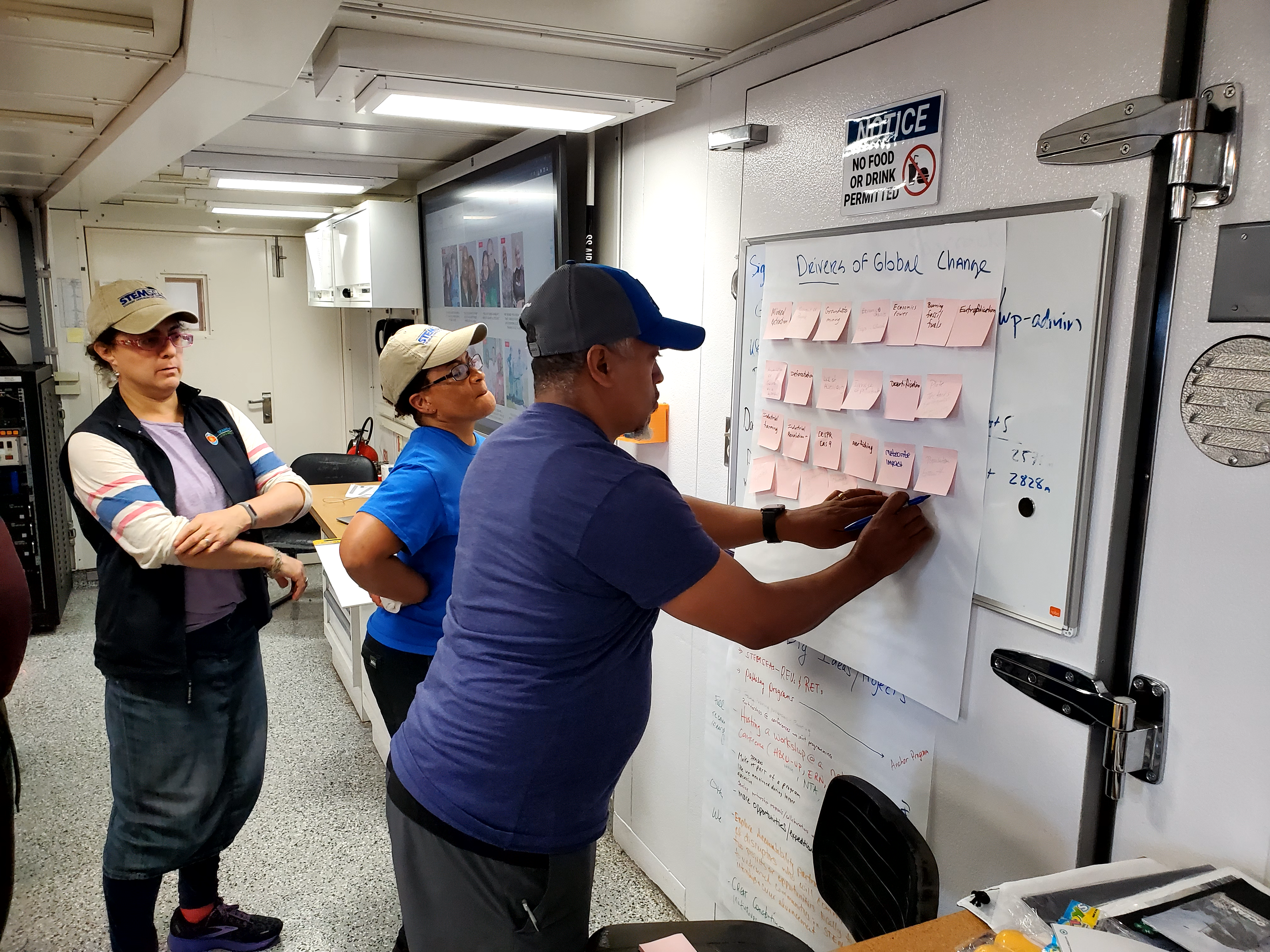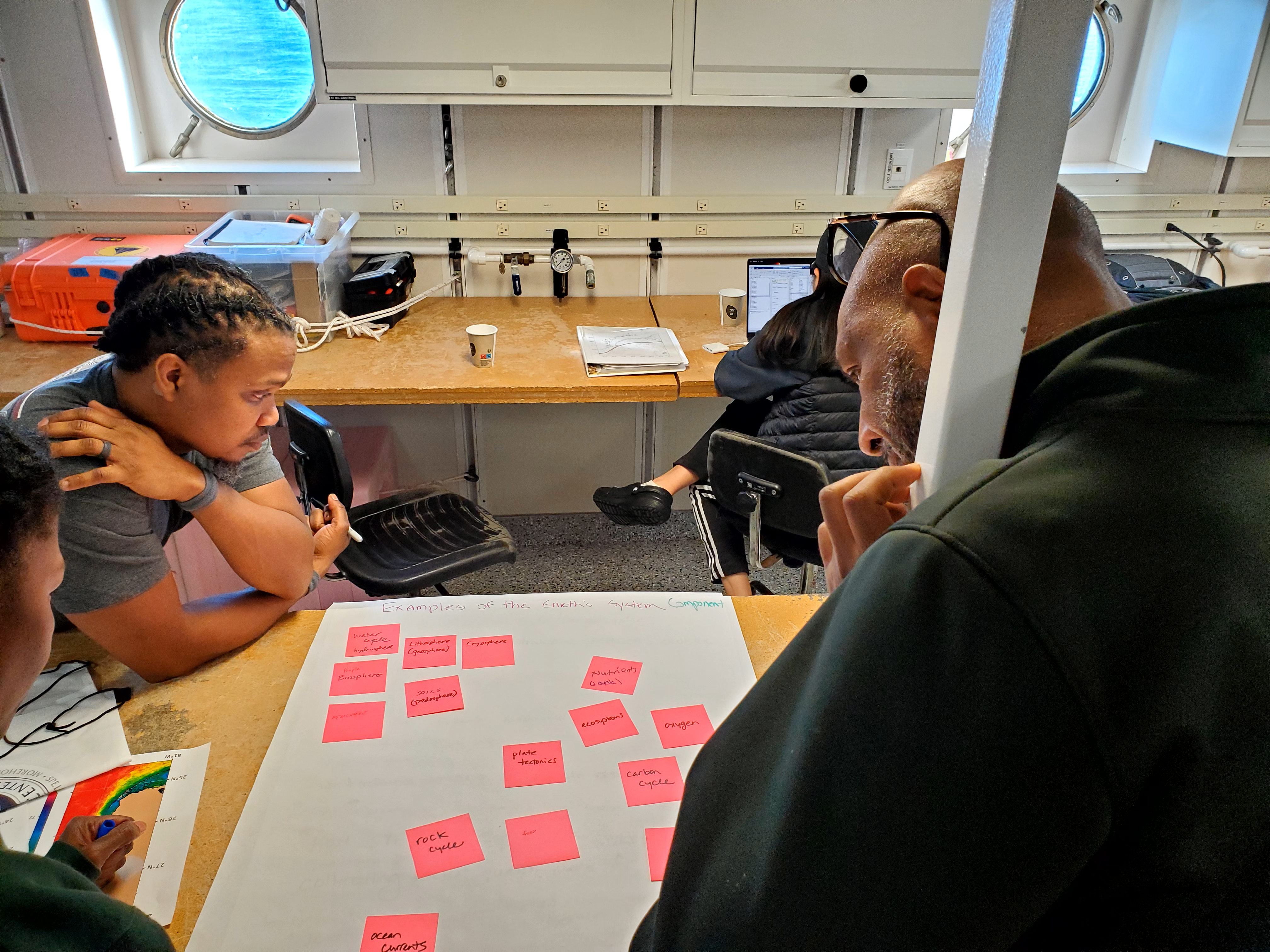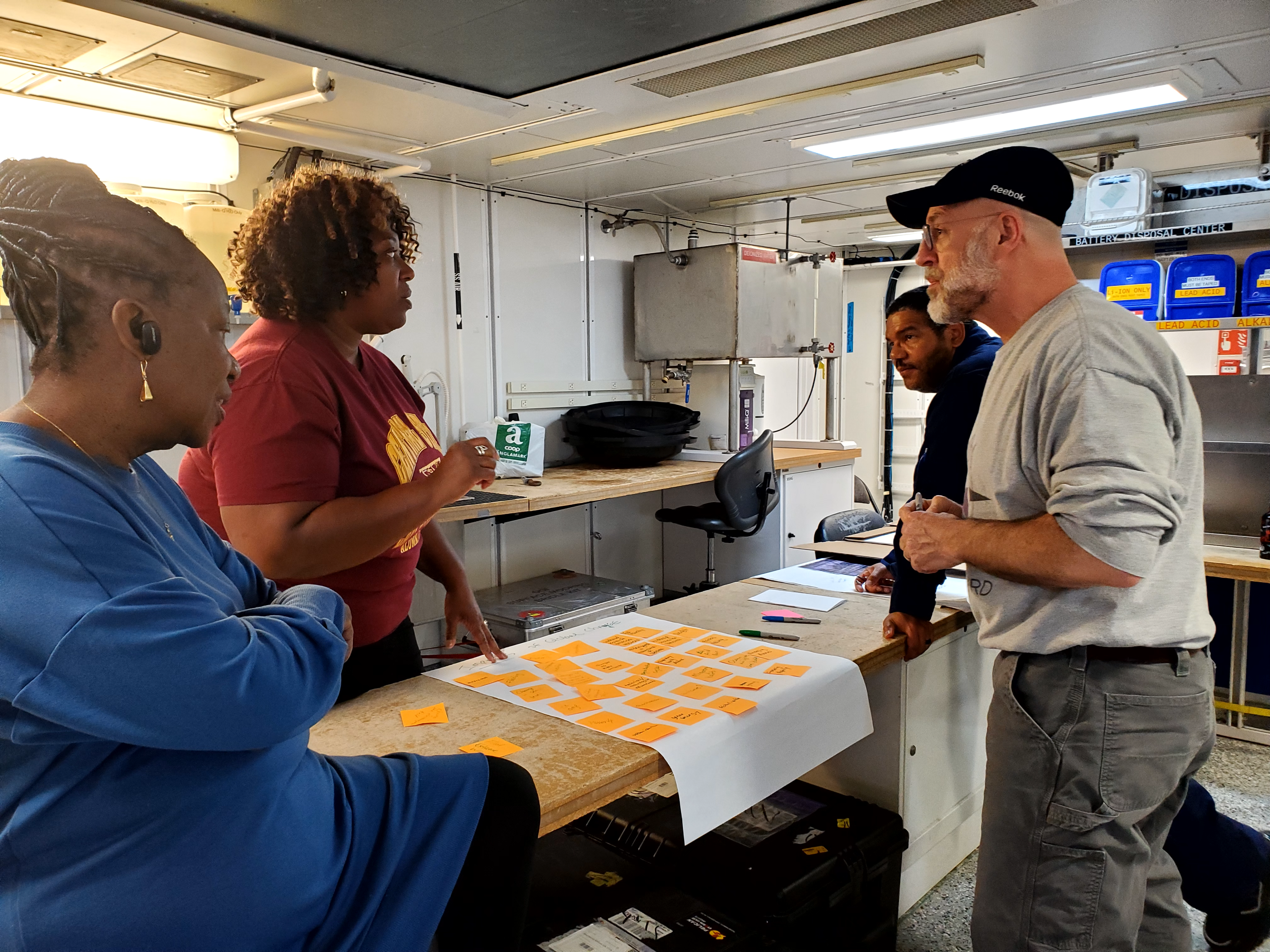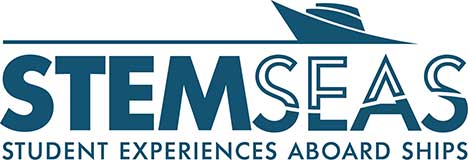Ideate. Analyze. Evaluate. Collaborate. Fund. Create. REPEAT.
9 Jan 2023, By Loretta Williams Gurnell, B.S., M.Ed., Founder & CEO: SUPERGirls SHINE Foundation
In a time where learning still comes in all different forms where expected outcomes in secondary education and on the collegiate level is on the rise, hands-on activities that build problem-solving and critical thinking skills that include different learning styles is still a priority for transformative learning.
The HBCU STEMSEAS Scientific Expedition continues to dig deep after eight (8) days of sea living as the listener, learner, collaborator, researcher, community builder, data analyst and soon to be, co-grant writers.
Starting off the day, we heard from Dr. H. Justin Ballenger, Assistant Professor of STEM Education at Morehouse College & Deputy Director of Atlanta University Center Data Science Initiative on “Advancing Equity Through STEM Education & Data Science.” With a journey stemming from a small Black community in South Carolina where Justin and childhood friends were called the “garbage patch kids” because of the negligence of leaders who intentionally deposited a landfill in their backyard as a kindergartener. Justin, along with colleagues, now take inequities like that of his childhood and use them to empower STEM preservice teachers in the areas of research & design, environmental justice, and data analysis. In doing so, preservice educators, particularly those who will teach in marginalized school systems, have a full scope, a realistic approach, historical markers and skills to fully equip preservice teachers with a mindset and heart that drives success through transformative experiential learning.
As the day progressed, participants heard from Jon Lewis, professor of geology at Indiana University of Pennsylvania and STEM SEAS Co-PI on Taiwanthe neotectonics of arc-continent collision constrained by modeling outcrop-scale faults and earthquakes. A student driven experience funded by NSF, HBCU colleagues and me, a nonprofit leader has yet another pathway to provide referrals and recommendations for the students we serve and mentor. Although this is a good opportunity, even with new knowledge and experiences like this one Jon shared, historically, HBCU’s and education startup nonprofits, like SUPERGirls SHINE Foundation face barriers to access to funding, resources and sustainable funding to support programs for our students, year after year. But good news came when we heard from STEMSEAS ONR – the Office of Naval Research program manager, Rob Sparrock sharing his background and career in naval leadership, along with his focus that drives diversity in thought, diversity of institutions and diversity in funding. This discovery shed light on ways HBCU’s, nonprofit startups and secondary education schools could partner with organizations like the Florida Institute of Oceanography to develop and sustain a pipeline of pathways that foster exposure to STEM education, research & development, internships, mentorships and tools and skills for advancing in STEM college degrees and careers. And believe it or not, all that took place before lunch!

Participants grasp new learning modeling for understanding global changes through drivers of these changes, led by Lisa D. White, PhD, director of education and outreach from UCMP
Back from lunch, we dug deeper into a collective brainstorming session of Low Hanging Fruit, Medium Scale Range & Big Projects/Ideas on — Why are we here? What can we build upon from this expedition? What skills, resources and potential partnerships can we explore that will move us closer to disputing the devastation of continual setbacks in our country’s rising new majority of middle class which compounds the poor in economics that ultimately impacts every area of our students and their families’ lives?

Participants grasp new learning modeling for understanding global changes through Earth’s systems & components.
Furthermore, as academicians and service providers, we have to stay connected and engaged with an increased interest in the things and content that drive interdisciplinary learning, lesson planning, research & develop along with exploration if we want to improve learning and learning experiences for all students, regardless of economics, ability, resources, gender, race and ethnicity. In as much, being the student, we had a chance to explore “Understanding Global Change”, led by UCMP’s director of education and outreach, Lisa D. White, Ph.D. Prior knowledge, interpretation, observation and vocabulary all played a part in the success of this group activity. Using their modeling system, we had a chance to model as teachers and students, learning how they would lead and learn from the introduction to review and developing hypotheses, using “What if,” as the foundation for each new cycle.

Participants grasp new learning modeling for understanding global change through the evidence of impact.
Then to wrap up the night, some of us braved the night air with the watching of the SpaceX launch of 40 OneWeb internet satellites from Cape Canaveral. This was a first for many of us, seeing the launch live and a first for all of us, seeing it from the R/V Neil Armstrong research ship. Click HERE to view.
Now that you’ve had a chance to take a look at today’s experiences, opportunities and backgrounds to transform our own ideas, biases and future performances, how can we connect to impact or explore ways to keep the intentionality moving forward where together we transform spaces in education, business, nonprofit and community for greater outcomes of sustainability? Your comments are welcomed below.
To learn more about the HBCU STEMSEAS Scientific Expedition or how you can sponsor future projects that open doors to experiential learning for underserved and underrepresented communities, visit https://www.Facebook.com/STEMSEAS/ and leave a comment or email Sharon Katz Cooper at scooper@ldeo.columbia.edu for additional information.
###


